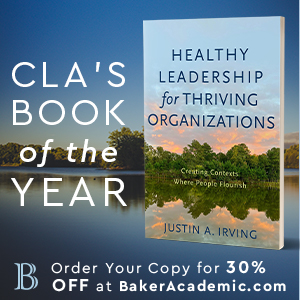
The Best Use of Wealth By John M. Thornton

A Biblical Perspective on Wealth
Quickly skim through the “Red Letter” section of the Bible, and you’ll find that Jesus has much to say about wealth. Yet there is only one place where he tells us the best use of wealth. In an odd and confusing little parable, the Parable of the Shrewd Manager, Jesus speaks of an owner who commends the manager who defrauded him for his shrewdness. What had the “shrewd” manager just done? Given his master’s creditors’ considerable reductions in their debt, they would welcome him into their homes when he was fired.
After Jesus chides his followers for not being as shrewd in accomplishing his purposes as the world is at accomplishing theirs, he gives us the best use of money.
“I tell you, use worldly wealth to gain friends for yourselves, so that when it is gone, you will be welcomed into eternal dwellings”
Use Wealth to Gain Friends for Yourselves
If you’re like most people I talk to, Jesus’ exhortation to “use worldly wealth to gain friends for yourselves” strikes you as just plain wrong. It rings shallow at best and completely misguided at worst. Doesn’t everybody know you can’t buy friends? At least not real ones!
Using wealth to gain friends for yourselves sounds like Andrew Carnegie’s How to Win Friends and Influence People – one of the bestselling self-help books of all time, but widely panned by critics as a tool for insincere “friends” to separate you from your money. History is littered with people who have foolishly wasted their money on false friends who departed as quickly as the wealthy did. Hence the well-known expression, “The fool and his money are soon parted.” Doesn’t even Jesus’ own Parable of the Prodigal Son expose the pitfalls of someone left wanting after wasting his inheritance on wild living and prostitutes? Had Jesus forgotten that one?
Absolutely not.
The Heart of the Father
It is no coincidence that Jesus’ Parable of the Shrewd Manager comes directly from the Parable of the Prodigal Son (Luke 15:11-32). Everyone was flocking to see Jesus, and the Pharisees and the teachers of the law leveled this criticism against him. “This man welcomes sinners and eats with them” (Luke 15:2). In response, Jesus gave three parables—the Parable of the Lost Sheep, Lost Coin, and Lost (or Prodigal) Son—all of which culminate with the common theme of a celebration, in heaven and on earth, when that which was lost is found.
So, too, with the prodigal son. When the humbled, starving young son comes to his senses, he returns home, intent on begging for forgiveness and a place with the hired servants.
“But he was still a long way off; his father saw him and was filled with compassion for him; he ran to his son, threw his arms around him, and kissed him.
The lost son’s plea for forgiveness was drowned out by his father’s lavish reception, complete with “the best robe, … a ring on his finger and sandals on his feet. Bring the fattened calf and kill it. Let’s have a feast and celebrate.”
I would have ended the parable right there. But Jesus didn’t. He brought the other brother into this story. The older brother is anything but pleased that his slacker sibling has crawled back to the fold. Despite his Father’s pleas, the older son reviles his little brother as underserving—certainly not worth wasting the family’s wealth to welcome him back.
Jesus contrasts the beautiful picture of a father’s love for his lost son against the disgruntled son’s response because he wanted the Pharisees and teachers of the law to see what mattered to God. Lost people are being found. Dead people were brought back to life.
The real question Jesus asks is: “Will you have the heart of the Father? Or of the other brother?”
The Gaining Friends Test
So how can you use your worldly wealth “to gain friends for yourselves, so that when it is gone, you will be welcomed into eternal dwellings”?
Ask yourself this simple question whenever you use your wealth. “Will this make a friend?”
When you use your wealth to love others as God loved you and give him the glory instead of taking it for yourself, you simultaneously fulfill the Great Commandments and the Great Commission. You make friends forever.
####
John M. Thornton is the Transitional Dean of Vanguard University’s Patty Arvielo School of Business and Management. He has held faculty positions at the U.S. Air Force Academy, Washington State University, and most recently at Azusa Pacific University,

At the Outcomes Conference, you will find a track to build your competencies and increase your leadership capacity in Financial Management. Check out the Financial Track and more!
Join us April 9-11 in sunny Jacksonville, Florida!
Be sure to pick up the Outcomes Conference Book of the Year by Dr. Justin A. Irving!


What is Christian Leadership Alliance?
Christian Leadership Alliance equips and unites leaders to transform the world for Christ. We are the leaders of Christ-centered organizations who are dedicated to faithful stewardship for greater kingdom impact.
Sign up for FREE blog updates.
Upcoming Events
Check back later!


